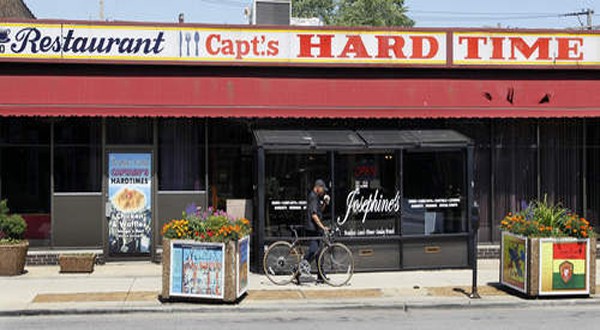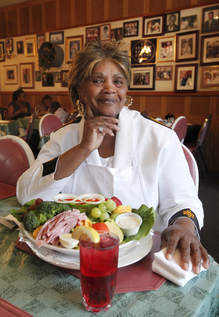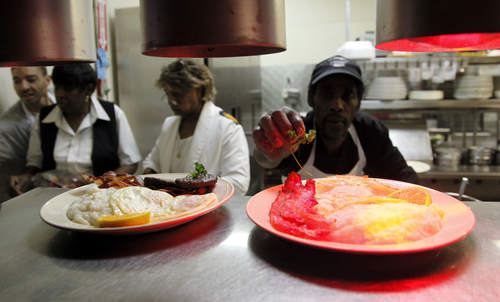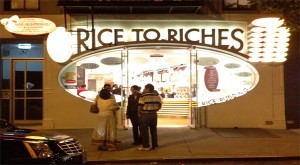Duct tape covers a large crack in the premier booth at Hard Time Josephine’s Cooking, where waitresses still call you “sweetie” and customers come for the steaming shrimp bisque and homemade peach cobbler with just a hint of cinnamon.
Not so long ago, an eyesore like this at one of Chicago’s top soul food restaurants would have been unthinkable. Chicago was a bustling center of black America. And people in the neighborhoods savored Southern-style cooking.
But in the past 10 years, the city has lost more than 17 percent of its black population, according to the U.S. Census Bureau. And one soul food place after another has closed. The surviving few, like Josephine’s, at 436 E. 79th, are struggling.
So, in a city where Southern cooking came north in the nation’s major post-World War II migration, a tradition is dying. “People used to stand outside the door to get in. It’s nowhere near like that,” says Josephine Wade, who has operated the restaurant in the Chatham neighborhood for more than two decades and keeps the place going by patching cracks with duct tape, disguising holes in tablecloths and washing the table linens herself. “Each year, it’s very, very difficult to be in business.”
The decline is a sign of the changing identity of a city in which blacks have been the largest racial group for decades, making up more than one-third of the population. One of Chicago’s most popular soul food restaurants, Army & Lou’s, on East 75th Street, closed in January. “When you lose your base, your foundation, the next generation isn’t there to keep it going,” former owner Harry Fleming says of the restaurant, which opened in 1945. “It’s losing a real strong sense of heritage.”
Earlier this year, the South Side lost Izola’s, known for its seafood. The year before, it was Edna’s, a West Side establishment once patronized by the Rev. Martin Luther King Jr. Also gone are the longtime Gladys’ Luncheonette, a popular musicians’ hangout with great banana pie, and Soul Queen.
Now, a visit to one of the traditional spots like Josephine’s feels like a step into the past. Pictures of King, the late Mayor Harold Washington and soul diva Patti LaBelle cover the walls, along with pictures of Josephine herself, an Arkansas native and onetime maid who wound up running restaurants all over the South Side.
The sweet aroma of fresh waffles and salty fried chicken — family recipes passed down through generations — hang in the air. No pop is served, only sweet tea. “The fried chicken is succulent. It’s fresh, got that Southern flavor,” says Eve Lowe, 59, who comes every Sunday for the brunch buffet of chicken and dumplings, greens and lemon pound cake. “It’s really a lot more than food,” says Audria Huntington, 81, who frequents Josephine’s for the liver and onions and the chicken and waffles. “Basically, you have the roots of your culture in the restaurant.”
Only a half dozen places like Josephine’s remain in Chicago. Over time, others have given way to fast food and imports like Cajun cuisine or have fallen victim to a bad economy. Also, more middle-class residents are moving to the suburbs, some retirees are heading “home” to the South, and others are pursuing the economic lures of the Sunbelt, reversing the historic wave that saw African Americans pour into Chicago from the South, seeking jobs in industry.
Increasing health consciousness also has played a role in the decline of soul food, often fried and made with full-fat ingredients.
Source: Chicago Sun Times







